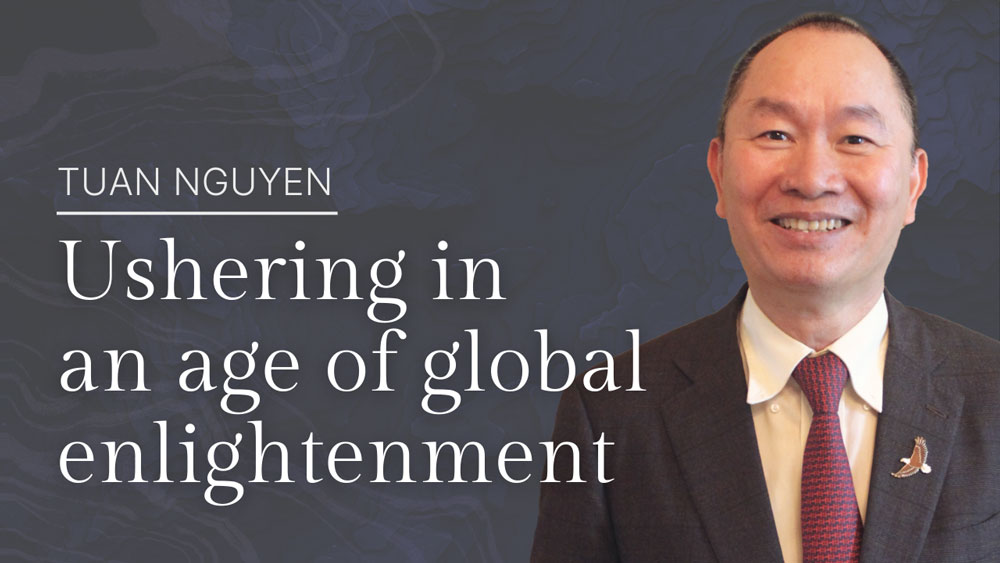Gillian Chepchirchir Moindi
8
min read
From Teller to Titan: The Soft Skills Behind Business Success
Carlo Vivaldi
Founder, Chairman | Rossor Country Club
Key Highlights
Carlo Vivaldi hated banking. But in a promise to his mother, he applied for a job as a teller in a small town in Italy. 30 years later, he was the regional CEO of Central Eastern Europe, headquartered in Milan and overseeing a trillion dollars of assets.
Carlo owes his accomplishments to the soft skills he has learned during his time in the banking industry. In his secret formula, emotional intelligence is the most potent, while communication comes a close second.
The most critical element of professional and business success is an evolving and diverse team. This channels a leader's values into sustainable operational excellence. Success is the by-product of group competence, positive relationships, and development.
Career Trajectory
The bank was the last place Carlo could see himself working in his teenage years. However, after a little convincing, his mum made him apply for a job as a teller at the Cassamarca Bank in Motta Di Livenza, Treviso, Italy. His move set the backdrop for an impressive 30-year career in banking.
Carlo’s passion for people and transformations drew him to team sports, particularly basketball and tennis. He learned to embrace change with an open mind and use it to his team’s advantage at work or on the court. He realized that, just like team sports, he needed more connections at work.
“You need to be lucky in your career, but you need to be able to perform well...not only for you but for others.”
His new job in banking presented the challenge of learning to communicate and connect in an unfamiliar environment. Communicating at a deeper level created meaningful relationships around his work that made growth much easier. This made him stay at Cassamarca for nearly 2 years, and in 1993, he stood out as a potential candidate for a Planner role in the same company. In 1999, his interest in change was piqued when an interesting job opportunity opened at UniCredit in Milan. He bade his team farewell, and as luck would have it, UniCredit merged four smaller banks in the same period, offering even more growth opportunities.
Carlo's determination and people-centeredness did not go without notice. His passion for motivating people and transformation was necessary in managing crises. His track record ultimately earned him a senior planning role in one of the banks. In the years that followed, he ascended to the Head of Planning of Central Eastern Europe before becoming the CFO of the UniCredit-owned Yapi Kredi in Turkey 3 years later. He later moved to Austria to serve as CFO and board member in 2007 and back to Turkey as the Deputy CEO and Deputy Board Chairman in 2011.
"...I became CEO of the Central Eastern Europe division. So, it was a total of ten banks. And in this period, of course, I had to travel a lot. So, I was flying 160 times per year."
At the peak of his career, Carlo was Senior Executive Vice President (SEVP). First, he served as SEVP Division CEO of 10 UniCredit banks in Central Eastern Europe from 2015. His regional responsibilities saw him manage teams across different territories and cultures. Constant travels across Central Eastern Europe made him learn and understand different cultures, their values, and what it took to interweave them with company goals. Eventually, he created a relationship of trust and respect that drove performance in Central Eastern Europe, earning him the SEVP Chief Operating Officer role in UniCredit's global division.
On the flip side, the COVID-19 pandemic started unravelling, and Carlo was the global Chief Operating Officer. Taking the role meant overseeing crisis management at the global level. Therefore, with the help of his staff, Carlo had to devise ways to improve how they worked while staying safe. They developed an interactive learning program that amplified individual skills, creating a more diverse team. Considering Italy was among the worst hit during COVID-19, the performance of Carlo’s team during the pandemic demonstrated his resourcefulness and resoundingly validated his leadership. Now, having capably led teams through the Lehman collapse and the pandemic and with nowhere left to climb, his passion called for his first love, that of sport. However, being in a UNESCO World Heritage site, seeking building permits for a private tennis court was pointless. His architect joked that owning the Vittorio Veneto Country Club was the only way he could get past the red tape. He did his research and realized the untapped potential of the exclusive country club business in Italy. Now, he is the founder and Chairman of Rossor Country Club, where he continues to build resilient teams.
The Secret Formula
Starting from a small-town bank teller to an executive position in a transnational bank's global division, anyone would be curious about Carlo's secret to success. However, from his experience, the answer is much simpler than you would expect. Success in a person's business or career is the product of living in alignment with their unique abilities, fostering self-sustaining cultures, and a supportive environment coupled with a little luck. But, from experience, luck and serendipity are unlikely to find idle hands.
Soft Skills
Often, when one mentions skills, the immediate thought is of the technical abilities required to manage a business or execute a task. Yet, according to Carlo, the most pivotal skills in any job or business are those accessible to all for learning. Success hinges on the seamless transferability of these soft skills from one individual to another. It's evident that interpersonal competencies are the linchpins of thriving businesses and illustrious careers. For instance, Forbes highlighted the importance of communication skills in securing top-tier tech positions in 2023 (Marr, 2022). Even with AI reshaping the job landscape, the unique "human touch" will remain invaluable in the evolving work ecosystem. Humans bring to the table unparalleled emotional intelligence, strategic foresight, and creativity—traits largely unmatched by automated systems.
According to Carlo, emotional intelligence is the most critical skill for businesses and careers. Emotional intelligence (EQ) affords you better communication, crisis management, presentation, and negotiation skills. Therefore, improving your career or business performance will be much simpler because of the influence you have on the people around you. But what exactly is emotional intelligence?
"Soft skills...in fact, the most important things you should develop are exactly those...you should learn how to deal with people... how to deal with stressful situations, how to present, how to negotiate... all these things everybody can learn. It's not the IQ that you have, or you don't have, but... the EQ can be developed."
Daniel Goleman’s bestseller Emotional Intelligence: Why it can matter more than IQ defines emotional intelligence as the sum of neural activity that triggers “self-awareness and management, social awareness and relationship management. The four domains describe the brain functions that show one’s level of emotional intelligence. However, the book also offers a simpler definition of emotional intelligence. First, emotional intelligence is the measure of a person’s emotional self-awareness and sense of achievement, adaptability, positivity, and emotional balance during such awareness. Second, it also measures how effective you are in detecting and understanding the emotional cues that float around your social environment and reacting in ways that make the relationships around you productive for specific purposes.
From Carlo’s story, emotional intelligence emerges as a tool enabling individuals to break cultural barriers in business and careers. At work, emotional cues can include a colleague’s tone when they talk about what they like doing, their background, or their beliefs. Therefore, emotionally intelligent people can pick up such cues as they interact with their customers or colleagues and communicate in more respectful, inspiring, or comforting ways. It is only then that you can break the cultural barriers that exist in business and in most professions. Therefore, emotional intelligence creates self-sustaining engines that maintain performance as employees continue communicating workplace values among themselves. For individuals, emotional intelligence is essential in creating rapport with colleagues. So, what are self-sustaining engines, and how do they maintain success in work and in business?

Istanbul, Türkiye. Photo credit: Givaga - stock.adobe.com
Self-Sustaining Cultures or Engines
A self-sustaining engine combines the business owner, leader, and employee efforts that ensure specific standards are met with almost clinical precision. Carlo describes the self-sustaining engine as a product of the business owner or leader’s effective communication and relationship management. For instance, when emotionally intelligent leaders create a culture of open sharing and learning, trust and respect in the workplace motivate them to contribute with or without supervision. As a result, the trust they have that their manager or organization has their best interests at heart will motivate them to perform tasks to the best of their abilities. Similarly, individuals can create engines around them that constantly feed their teams and development. That being the case, their significance in maintaining the quality of work explains why teams are crucial in business and professions.
Carlo admits that his team was pivotal to his professional success in the 3 decades he has worked in the banking industry. For example, the team helped in brainstorming and strategy development during crises. Carlo fondly remembers meeting team members to develop a model that could support skill development and operation standards. An interactive model from Spotify came up as the simplest yet most effective at the time.
“I like to create these engines, and I'm proud of creating the best practice sharing platform with KPIs. Spotify had a very good explanation. In 20 minutes, you could have learned the operating model of Spotify as if you had been there for six months...”
Research conducted on participants in operative games suggested that team effort directly influenced organizational success (Askari et al., 2020). The teams’ overall performance improved gradually over time. In practice, team sizes differ, but the need for an open system that enables personal growth is universal. It is only with such “engines” that companies and employees can adapt to the changes they face in their business and work. While most people’s teams will not be decision-makers for a large bank, the same principles hold true regardless. The people around you can either enable you to transform with the changes that come with your work or business, or they will limit your responsiveness. From team sports to business and to careers, success depends on how openly people around you can support your personal and business growth.
Luck? What does it have to do with anything?
Everyone believes a little luck will go a long way in their career journeys. Similarly, Carlo relates his career success and the idea of his current venture to a little luck along the way. He admits that some of the most significant opportunities came to him by chance, and they pretty much carved his path to professional success. But what do luck or happy accidents contribute to one’s success? The simple answer is hardly anything. With Europe being one of the worst-hit regions, it was not through luck but team effort and planning that he fostered performance. With an actualized team pulling in the same direction, there is no problem insurmountable.
Conclusion
More than just individual soft skills, a competent team's synergy is the cornerstone of lasting excellence. Cultivating positive relationships with diverse colleagues accelerates shared learning and adaptability, turning teams into agile, responsive engines.
In the face of challenges, a shift in perspective can transform crises into opportunities. Robust communication frameworks, bolstered by these "dynamic engines," allow for swift identification and improvement of weaknesses. Embracing feedback throughout one's career fosters growth, making an individual more appealing to employers and colleagues alike.
References
Askari, G., Asghri, N., Gordji, M. E., Asgari, H., Filipe, J. A., & Azar, A. (2020). The impact of teamwork on an organization’s Performance: A cooperative game’s approach. Mathematics, 8(10), 1804. https://doi.org/10.3390/math8101804
Goleman, D. (2020). Emotional intelligence. Bantam Books.
Marr, B. (2022, December 6). Top 5 in-demand tech skills for jobs in 2023. Forbes. https://www.forbes.com/sites/bernardmarr/2022/12/05/the-top-5-in-demand-tech-skills-for-jobs-in-2023/?sh=3bf46357826c



